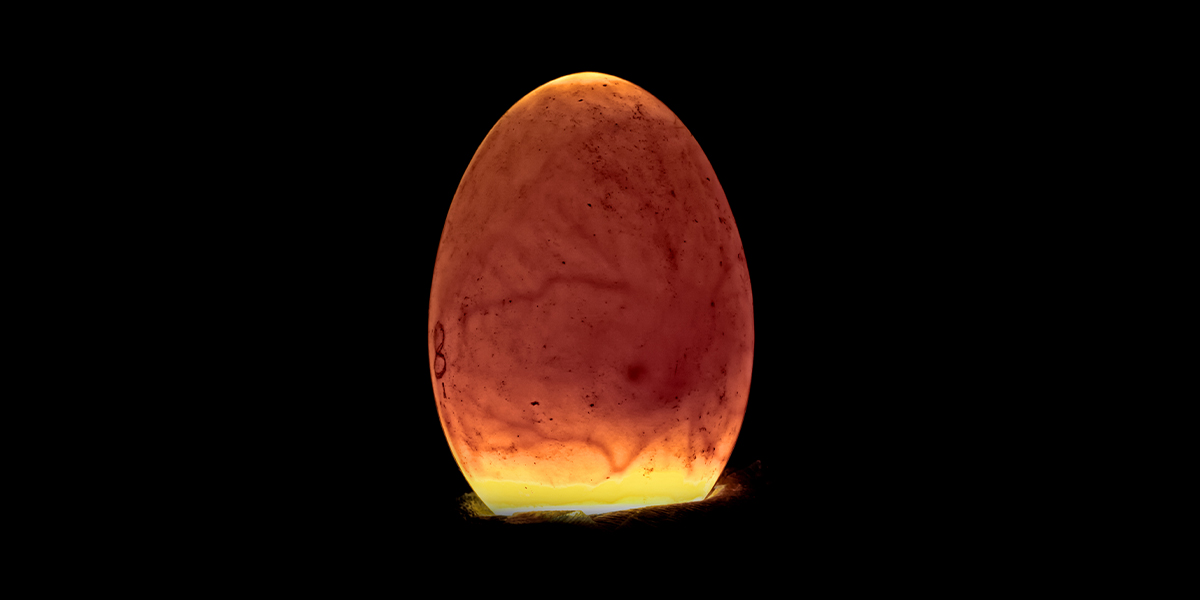Dans l'industrie avicole actuelle, il y a une pénurie de poussins sur le marché. Les producteurs sont donc contraints d'augmenter le nombre de poussins robustes qu'ils produisent pour leurs troupeaux afin de répondre à la demande mondiale des consommateurs.
Les œufs non éclos ou les poussins qui ne sont pas robustes à l'éclosion sont parmi les principaux facteurs qui nuisent à la rentabilité des exploitations avicoles. Cela peut se traduire par une diminution du nombre de volailles arrivant à l'usine de transformation ou par des volailles arrivant à l'usine de transformation avec un poids de carcasse inférieur.
De nombreux facteurs contribuent à la production d'un poussin robuste d'un jour. Mais peu d'entre eux sont aussi importants que le développement d'un squelette solide.
Importance de soutenir le développement des poussins pour des poussins d'un jour forts
Tout d'abord, nous avons émis l'hypothèse que des os solides sont essentiels à la capacité d'un oiseau à éclore. S'ils doivent travailler trop dur pour percer la coquille de l'œuf et s'en extraire, ils risquent d'entamer leur première journée avec une carence en nutriments plus avancée en raison de l'utilisation de tous les nutriments embryonnaires disponibles. Cela désavantage leur développement au début de leur vie.
Deuxièmement, les poules sont précoces, c'est-à-dire qu'elles peuvent marcher seules et se nourrir dès le premier jour. Elles ne dépendent jamais de leur mère pour les nourrir, contrairement à d'autres oiseaux et animaux.
C'est pourquoi nous devons veiller à ce que le squelette soit correctement formé et suffisamment calcifié pendant que le poussin est encore un embryon. Voyons comment fonctionne ce processus et comment vous pouvez contribuer à l'obtention d'un poussin d'un jour robuste en fournissant une alimentation optimale à vos éleveurs.
Les suppléments d'oligo-éléments organiques produisent la matrice squelettique pendant le développement du poussin
Le premier signe de squelette dans la vie d'un poussin se produit au cours des sept premiers jours du développement de l'embryon. Pendant cette période, le zinc, le cuivre et le manganèse s'associent pour former la matrice organique à base de collagène.
À ce stade, le squelette est mou et ressemble presque à de la gélatine. Au cours des 14 jours suivants, les os devront être enrichis en calcium pour devenir suffisamment solides pour qu'ils puissent éclore et commencer à manger dès qu'ils sont placés dans le poulailler.
Pour que le squelette se calcifie, les embryons doivent absorber le calcium de la coquille de l'œuf et c'est là que la nature prend le relais. L'œuf contient une enzyme dépendante du zinc qui libère le calcium de la coquille.
Le calcium atteint l'os et se combine au phosphore contenu dans le jaune d'œuf. Il minéralise la matrice préformée à base de collagène, la rendant dure et solide pour que le poussin puisse éclore et commencer à prospérer.
Les minéraux de performance Zinpro améliorent la production, en commençant par le développement des embryons de poussins
Le zinc, le manganèse et le cuivre sont tous nécessaires au processus de formation et de calcification du squelette de l'œuf. En nourrissant les Minéraux de Performance Zinpro® pour les éleveurs, il est possible d'améliorer plusieurs paramètres de production.
Dans l'ensemble, la supplémentation des régimes alimentaires des éleveurs avec des oligo-éléments de performance provenant de Availa® ZMC en plus des sources inorganiques a permis d'améliorer le nombre de poussins par poule hébergée de 4,6% par rapport aux sources inorganiques seules. Nous avons également constaté une amélioration de 2% de l'éclosion et une réduction de 17% de la mortalité embryonnaire précoce lorsque les éleveurs ont été nourris avec des aliments contenant Availa ZMC.
Télécharger : Availa® Le ZMC améliore les performances des éleveurs de poulets de chair
Comment parvenir à ces améliorations ? Cela commence par la calcification embryonnaire ! Les oiseaux issus de reproducteurs nourris avec Availa ZMC ont connu une augmentation de 1% de la minéralisation osseuse à l'éclosion par rapport aux oiseaux nourris avec des sources inorganiques des mêmes minéraux.
En améliorant la calcification embryonnaire et en développant un squelette solide avant même l'éclosion des oiseaux, vous pouvez produire des poussins d'un jour plus robustes et leur assurer des performances élevées tout au long de leur vie.
Pour savoir comment commencer à inclure Availa ZMC dans votre programme de nutrition des éleveurs contactez un représentant Zinpro dès aujourd'hui.

